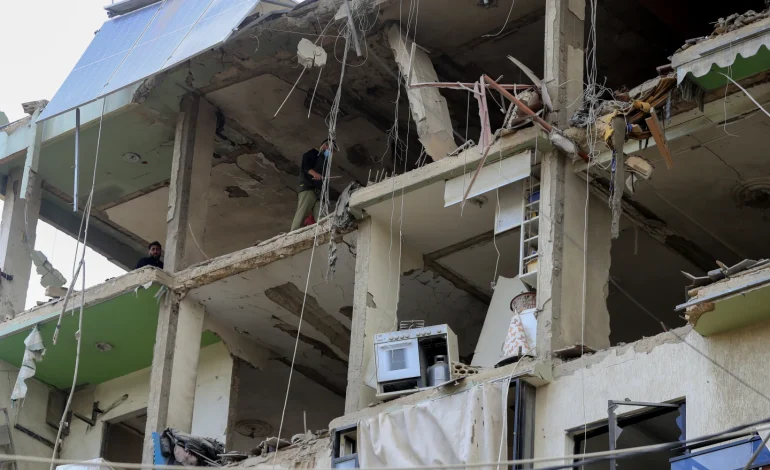Lebanon’s Death Toll Surpasses 3,000 in 13-Month Hezbollah-Israel War

The 13-month conflict between Israel and Hezbollah has claimed the lives of over 3,000 people in Lebanon, The Associated Press reports, citing the country’s Health Ministry.
This figure more than doubles the death toll from the last major war between the two nations two decades ago.
The war shows no signs of abating, with Israel continuing to carry out airstrikes targeting Hezbollah infrastructure throughout Lebanon and parts of Syria. Meanwhile, Hezbollah continues to launch rocket attacks into northern Israel.
The conflict escalated dramatically on September 23rd with intense Israeli airstrikes on southern and eastern Lebanon, as well as Beirut’s southern suburbs. The attacks resulted in hundreds of deaths and the displacement of nearly 1.2 million people.
On October 1, Israel initiated a ground invasion of southern Lebanon, causing significant destruction in border villages but making little progress on the ground inside Lebanon. Israel claims to be destroying Hezbollah weapons and command centers near the border, including an extensive tunnel system built by the group.
The Lebanese Health Ministry reported 16 deaths and 90 injuries from attacks on Sunday, bringing the total death toll to 3,002. At least 13,492 people have been injured. The ministry does not distinguish between civilians and Hezbollah fighters in its casualty count. Israel claims that hundreds of Hezbollah fighters have been killed.
In Israel, 72 people have been killed by Hezbollah attacks, including 30 soldiers, according to the Prime Minister’s office. Over 60,000 people have been displaced from their homes.
Meanwhile, Israel has announced the termination of an agreement facilitating the work of the UN Relief and Works Agency for Palestine Refugees in the Near East (UNRWA), the main aid provider in Gaza. This action is the first step in implementing legislation passed last week that aims to sever ties with the agency, which Israel claims has been infiltrated by Hamas.
The Israeli Foreign Ministry stated that it has notified the UN of the cancellation of an agreement dating back to 1967, which facilitated UNRWA’s operations. They claim that UNRWA “is part of the problem in the Gaza Strip and not part of the solution.”
UNRWA denies these allegations and insists that it takes measures to ensure its neutrality.
Aid groups have expressed concerns that the legislation could severely hinder UNRWA’s work, creating further obstacles to addressing the severe humanitarian crisis in Gaza. Israel maintains that UNRWA is responsible for only 13% of aid entering Gaza and that other UN agencies and aid groups can fill the gap. However, aid organizations argue that UNRWA is crucial, and the agency claims that the Israeli figures do not account for its key role in coordinating aid deliveries.
The US State Department has expressed grave concerns about the implications of the legislation being fully implemented and the underlying humanitarian situation in Gaza. The agency provides education, health, and other essential services to Palestinian refugees from the 1948 war surrounding Israel’s creation and their descendants, who now number nearly six million across the region. Refugee families constitute the majority of Gaza’s population. The remainder of the legislation is set to go into effect in three months.








